by Peter Knight ND
The holiday season is a time of many celebrations and with that comes a lot of opportunities for eating. As we continue our exploration of the digestive tract, now that you are in the right mind state for optimal digestion it’s finally time to take a bite.
Chewing is the first in many steps towards breaking down your food into small particles that your body can absorb and utilize for energy, and all of your nutritional needs. Chewing is also the only one of these breakdown mechanisms that we completely control. Our teeth are designed to tear off bites of our food and then mash it down into a paste. In addition to the teeth grinding our food up, chewing also allows the food to be mixed with saliva and digestive enzymes that help to chemically break down the food.
Ideally by the time the food hits the stomach it is already well on its way to being broken down. On a basic level, if you are not chewing, the food particles are too big to be properly digested. It is going to be more difficult for it to make its way down your esophagus to the stomach. This can cause discomfort and irritation, but can also lead to increased potential for heartburn and reflux. (More on that in the next blog!)
On a chemical level, if your food is not spending enough time being broken down and mixed with saliva in your mouth, you are not going to get the benefit of two very important digestive enzymes, amylase and lipase. Digestive enzymes are chemicals that speed up how quickly components in your food are broken down. Different enzymes help with different parts of your food.
Salivary amylase is a digestive enzyme secreted in the mouth that helps to break down carbohydrates into smaller sugars. If you have ever put a cracker in your mouth and let it sit there for a moment, you will notice that it quickly breaks down to mush. This is in large part a result of the amylase. If carbohydrates are not getting broken down adequately, it can lead to carbohydrate malabsorption that can cause painful gas, bloating, and even diarrhea.
Lingual lipase is an enzyme secreted from under your tongue that helps to begin breaking down fat in your food. If you don’t take time to chew your food, the fat in your food may not be getting digested well which can also lead to cramping, bloating and heartburn.
So how long should you chew your food?
In the late 1800’s there was a health food proponent named Horace Fletcher who promoted the idea of chewing your food thirty two times before swallowing. He declared that “nature will castigate those who don’t masticate.” While there is no harm to chewing this much (except for possibly a sore jaw), there is no magic number of times you should chew your food. The size of the bite and the type of food are going to affect how long it takes for it to be well broken down and mixed with saliva and enzymes.
Following these steps can help to make sure that you are chewing adequately:
- Don’t bite off more than you can chew. Taking smaller bites will decrease the number of times you have to chew.
- In general it is a good idea to chew until the food feels like it is the consistency of a paste and is saturated with saliva.
- If you find that your mouth is dry and you are not producing saliva this may be an indication that you are not yet in a parasympathetic state. Put your fork down and take 5 to 10 breaths before proceeding. (See my previous blog for more details)
- Finish chewing one bite before starting on the next. Placing your fork, spoon, or sandwich down between bites will help to slow you down and make it easier to do this.
In addition the benefits mentioned above, taking time to chew your food will help you to eat more slowly, allowing your brain time to register that you are full which will help to avoid overeating. Eating more slowly will also help to keep you in the more relaxed or parasympathetic state which will enhance the entire digestive process.
Instead of thinking of the holiday season as a time for more opportunities for indigestion, think of it as a time to practice your chewing and see if you can promote optimal digestion. In my next blog we will make our way down the esophagus to the stomach and see that stomach acid is not just a pesky annoyance that we should take purple pills to suppress.
Click here to read the first post in Dr. Knight’s series.
Dr. Peter Knight, ND, is a licensed doctor of naturopathic medicine specializing in nutritional and holistic treatment approaches to chronic health conditions. He is a graduate of Bastyr University and is in private practice at Healthy Living Health Care in Falmouth, Maine.


